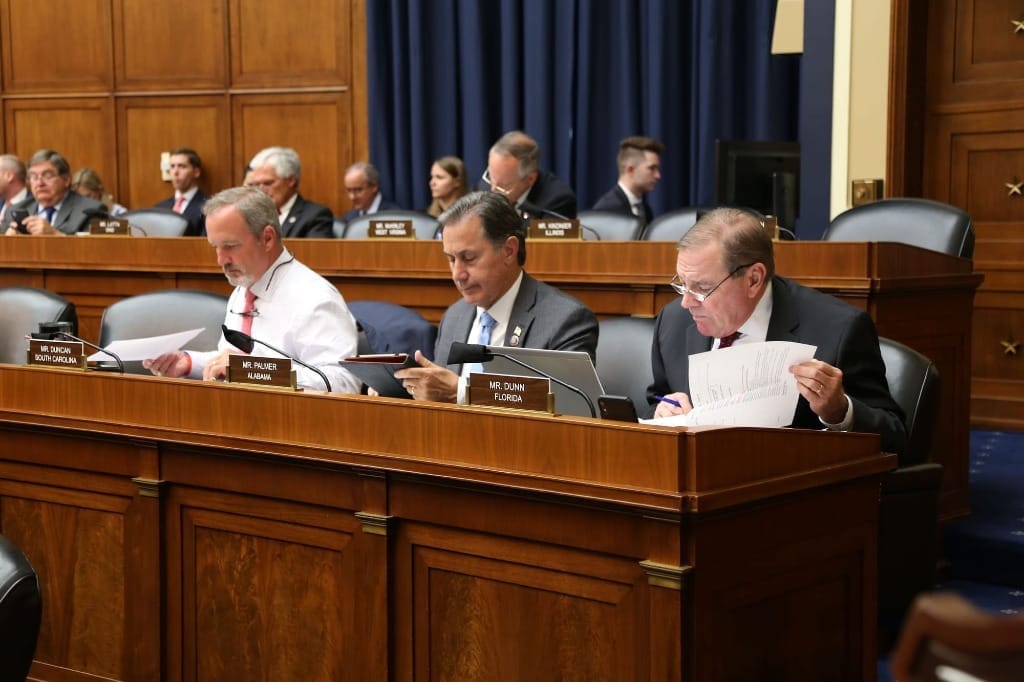Congress Accelerates Tech Agenda with House Markup of Key Bills
House panel revives broadband, cybersecurity, and supply chain bills.
Jericho Casper

WASHINGTON, April 1, 2025 – The House Energy and Commerce Committee will mark up more than two dozen bills Wednesday, including over ten tech and telecom measures that have already gained traction in the Senate and could soon reach the president’s desk.
With the Senate Commerce Committee having advanced many of these measures in recent weeks, House lawmakers were now advancing their side of the bipartisan tech agenda, with proposals spanning broadband expansion, supply chain security, smart device regulation, and consumer protections.
Among the 25 bills to be considered, five of the bills on the docket have already cleared Senate Commerce:
- H.R. 2480, the Securing Semiconductor Supply Chains Act of 2025, introduced by Reps. Greg Landsman, D-Ohio, and Cliff Bentz, R-Ore., would strengthen America’s semiconductor supply chain. The Senate companion was led by Sen. Maria Cantwell, D-Wash., and passed the Senate Commerce Committee on March 12.
- H.R. 866, the Removing Our Unsecure Technologies to Ensure Reliability and Security (ROUTERS) Act, introduced by Reps. Bob Latta, R-Ohio, and Trent Kelly, R-Miss., would require the Commerce Department to assess security risks posed by routers and modems manufactured in adversarial nations. The Senate version, led by Sen. Marsha Blackburn, R-Tenn., and Sen. Ben Ray Luján, D-N.M., passed the Senate Commerce Committee on March 12.
- H.R. 859, the Informing Consumers About Smart Devices Act, introduced by Reps. Russ Fulcher, R-Idaho, and Seth Moulton, D-Mass., would require clear labeling on smart devices containing cameras or microphones. The Senate companion, led by Sens. Ted Cruz, R-Texas, and Cantwell, was approved by the Senate Commerce Committee on March 12.
- H.R. 2444, the Promoting Resilient Supply Chains Act of 2025, introduced by Reps. John James, R-Mich., Debbie Dingell, D-Mich., Erin Houchin, R-Ind., and Trent Kelly, R-Miss., would establish a federal working group to strengthen U.S. tech supply chains. Companion legislation passed the Senate Commerce Committee on February 5.
- H.R. 2399, the Rural Broadband Protection Act, introduced by Reps. Erin Houchin, R-Ind., and Trent Kelly, R-Miss., also passed the Senate panel on February 5. The Senate companion was led by Sen. Shelley Moore Capito, R-W.Va., and would tighten FCC vetting procedures for broadband providers seeking federal funding in unserved areas.
Revived After Being Dropped from January’s Funding Omnibus
Several of the bills set for markup were previously dropped from a January government funding package:
- H.R. 2482, the NTIA Reauthorization Act of 2025, introduced by Reps. Bob Latta, R-Ohio, and Doris Matsui, D-Calif., would reauthorize the National Telecommunications and Information Administration for the first time since 1992. It would also direct the agency to coordinate a national broadband strategy spanning more than 100 federal initiatives.
- H.R. 633, the TAKE IT DOWN Act, introduced by Reps. María Elvira Salazar, R-Fla., Madeleine Dean, D-Pa., August Pfluger, R-Texas, Debbie Dingell, D-Mich., Vern Buchanan, R-Fla., and Stacey Plaskett, D-V.I., would criminalize the distribution of non-consensual deepfake pornography and intimate images.
- H.R. 906, the Foreign Adversary Communications Transparency (FACT) Act, introduced by Reps. Rob Wittman, R-Va., Kathy Castor, D-Fla., Tom Kean Jr., R-N.J., and Ro Khanna, D-Calif., would require the FCC to publish an annual list of license holders with substantial foreign ownership from adversarial nations.
Reintroduced After Stalling Last Session
Several of the bills under consideration were introduced in the previous Congress but failed to advance out of the House:
- H.R. 2449, the Future Uses of Technology Upholding Reliable and Enhanced (FUTURE) Networks Act, introduced by Reps. Doris Matsui, D-Calif., Rick Allen, R-Ga., and Tim Walberg, R-Mich., was reintroduced on March 31. The bill, which passed the House last session but stalled in the Senate Commerce Committee, aims to guide long-term planning for secure next-generation 6G network infrastructure.
- H.R. 2037, the OpenRAN Outreach Act, introduced by Reps. Troy Carter, D-La., and Richard Hudson, R-N.C., would require the NTIA to provide technical assistance and outreach to small communications providers on the benefits and challenges of open radio access networks (Open RAN). It did not advance in the House last session.
- H.R. 1717, the Communications Security Act, introduced by Reps. Rob Menendez, D-N.J., and John Joyce, R-Ohio, seeks to improve interagency coordination on telecommunications infrastructure security. The bill failed to advance out of committee in the last Congress.
The markup is scheduled to begin at 10 a.m. ET in the John D. Dingell Room of the Rayburn House Office Building and will continue into subsequent days as needed.
Correction: A previous version of this article had the incorrect first name for Rep. John Joyce, R-Ohio, an M.D. His first name is John, not David.










Member discussion